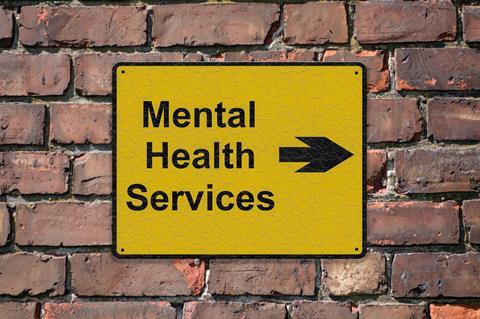Mental health lawyers are demanding a big rise in civil legal aid rates that have slumped in real terms over the last 15 years. And they are prepared to withdraw their labour to get it
The Mental Health Lawyers Association recently asked members the following question: ‘Would you be prepared to take strike action to highlight your concern about the poor remuneration of civil legal aid work?’ A staggering 85% said yes.
Just how bad is the pay? MHLA secretary David McLaughlin explained that solicitors are paid on a fixed-fee basis and there are three payment levels.
Level 1 covers all work from the initial meeting, submission of the application to the tribunal, initial letters, and advice to the client. Level 2 covers investigation and examination of evidence, including reports to the tribunal, review of medical records, interviews with the client for instructions and interviews with professionals for additional information. Level 3 covers advocacy at the tribunal hearing and follow‑up work.

In 2008, the total fixed fee for completing level 1, 2 and 3 was £827. Fees were cut by 10% in 2011, resulting in a fixed fee of £744 –Mclaughlin £129 for level 1, £321 for level 2 and £294 for level 3.
Solicitors are also paid £253 for work representing a client on a non-tribunal matter (before 2008, it was £281). This covers early legal advice, and advice on ancillary and supplemental matters regarding applications to the tribunal, such as appropriate care and treatment or medication issues.
‘To put the fixed fees into context, the hourly rate on a tribunal file is in the region of £45 per hour and for non-tribunal work can be as little as £35 per hour,’ McLaughlin said.
Legal aid providers are struggling on the current rates to meet the high costs associated with running a business, he added. These include office leases, insurance, staff, IT, training, as well as the costs associated with contractual compliance.
No surprise then that the provider base has shrunk. The Law Society says the number of firms with mental health contracts fell from 274 in 2011/12 to 169 a decade later.
‘This work is not financially viable and dedicated practitioners are reluctantly having to close their legal aid departments,’ said Law Society president Lubna Shuja. And yet demand for their services is rising.
Community treatment orders introduced by 2008 amendments to the Mental Health Act increased the number of patients who come under the act and have a right to apply to the tribunal to appeal these orders. The number of detentions has also increased.

McLaughlin says the government’s Draft Mental Health Bill 2022, which will reform the Mental Health Act 1983, proposes more safeguards and more tribunals, ‘all of which require skilled lawyers to represent clients. But there is no ancillary proposal to ensure there is a sustainable supply of mental health lawyers to enable the proposals to work’.
So how much should mental health lawyers be getting?
‘Accounting for inflation, the fixed fee payment today [discounting the 10% cut] would be circa £1,200 per case. The post-cut payment today would be in the region of £1,000 per case,’ said McLaughlin.
Noting that colleagues in the criminal branch of the legal aid sector recently saw a 15% fee increase, following direct action by the criminal bar, the MHLA says the government should reverse the 10% cut of 2011, increase mental health legal aid fees by 15%, and account for inflation since the date that fixed fees were implemented in 2008.
Shuja said the government needs to urgently inject funds to stabilise the market and stop the system from collapsing.
A spokesperson for the Ministry of Justice said: ‘We have invested £813m in civil legal aid in the last year alone to make sure those who most need legal advice can access it and we are reviewing the sector to ensure the system is sustainable well into the future.’
The department said legal aid will continue to be available for all matters under the Mental Health Act, including challenging detention before tribunals. Legal aid for applications to challenge detention will continue to be exempt from the means test. However, any measures to save the shrinking civil legal aid sector will not be implemented until late 2024 at the earliest.
‘Clients in need are falling through the cracks and the cracks are getting bigger and bigger,’ said McLaughlin. ‘This is evidenced by the Legal Aid Agency’s recent repeated tender opportunities in relation to providers for housing advice. A similar situation across all areas of legal aid work, including mental health, cannot be too far around the corner.’




































No comments yet